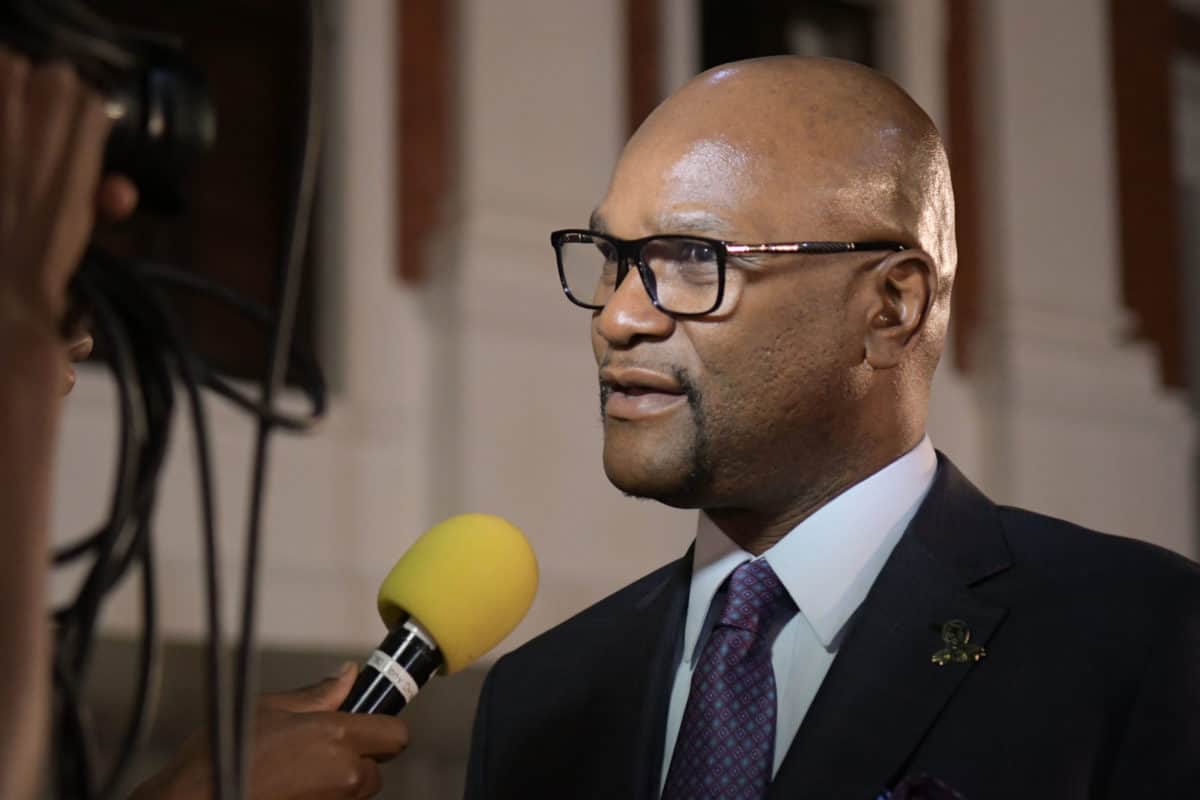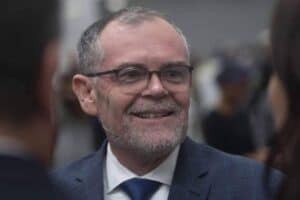Mthethwa’s death is a turning point. It symbolizes a system where loyalty trumped law and silence shielded corruption.

By any measure, SA ambassador to France Nathi Mthethwa was a towering figure in South African politics. His death – plunging from the 22nd floor of a hotel in Paris – has stunned the nation.
He was found dead on Tuesday – just days after his name surfaced in damning testimony at the Madlanga Commission of Inquiry.
But shock alone is not enough. If South Africa is to confront the rot that has seeped into its institutions, we must ask the hard questions about how a man once entrusted with the nation’s police could become entangled in the very corruption he was meant to fight.
In 2022, as sport, arts and culture minister, Mthethwa had wanted to erect a monumental flag for R22 million. A public outcry forced President Cyril Ramaphosa to stop the project.
But Mthethwa’s legacy is now overshadowed by allegations of interference in police investigations. KwaZulu-Natal police commissioner Lieutenant-General Nhlanhla Mkhwanazi alleged Mthethwa intervened to shield former Crime Intelligence boss Richard Mdluli from prosecution.
The charge? Misuse of secret funds for personal gain. The implication? A minister willing to bend the law to protect political allies.
This is not just about one man’s fall.
It’s about the architecture of impunity that has long defined South Africa’s security apparatus. Mthethwa’s death must not become a convenient full stop. It must be a comma, prompting deeper inquiry into the networks he served and the silences he maintained.
The commission must resist the temptation to sanitise its findings or defer to political sensitivities. The public deserves clarity: who knew what, and when? Who benefited from the paralysis of oversight? And how deep does the rot go? The commission must also have the courage to follow the evidence, even if it leads to the highest offices. If Mthethwa was a fixer, we must ask: who was he fixing for?
Mthethwa’s death is not just a personal tragedy – it’s a political tremor. For years, he was a fixture in the ANC’s security cluster, a loyalist whose name surfaced in every reshuffle but whose record rarely faced scrutiny.
ALSO READ: Nathi Mthethwa’s family wants answers as ANC says it must ‘do its own digging’
Now, in death, he becomes a symbol of the very system the Madlanga commission seeks to dismantle, one where loyalty trumped legality and silence was currency.
The revelations from Mkhwanazi are not isolated. They form part of a broader pattern. And this pattern is political interference in prosecutions, manipulation of intelligence structures, and the weaponisation of state resources for factional ends.
The commission’s mandate is clear, but its challenge is formidable. It must pierce through layers of obfuscation, institutional memory loss, and the ANC’s culture of internal protection.
And let us not forget the timing. Mthethwa was reportedly on the witness list. His death, whether coincidental or connected, removes a key node in the network. But it also raises the stakes for those still to testify.
Will they speak freely? Will they be protected? Or will the fear of exposure; of retribution continue to silence those who know too much?
ALSO READ: National Arts Council praises Nathi Mthethwa after his passing despite controversies
South Africa stands at a crossroads. The commission can either be a turning point or another missed opportunity. It must summon the courage to reveal names, trace money and recommend prosecutions. Not just for the sake of justice, but for the survival of democratic accountability.
The time for polite indignation has passed. This moment demands more than commissions and condolences – it demands courage.
South Africans must refuse the politics of amnesia. For they will inherit the institutions being gutted in the shadows.
The commission must not merely expose the truth, but it must also provoke justice. And justice, in this country, will not come from above. It will come when ordinary people are armed with memory, fury, and a vision to refuse to look away.
South Africa cannot afford to mourn in silence. We must confront the uncomfortable truth: Mthethwa’s death may be tragic, but the deeper tragedy lies in the institutions he helped shape, and the damage they continue to inflict.
NOW READ: A timeline of Nathi Mthethwa’s last hours: What we know so far






